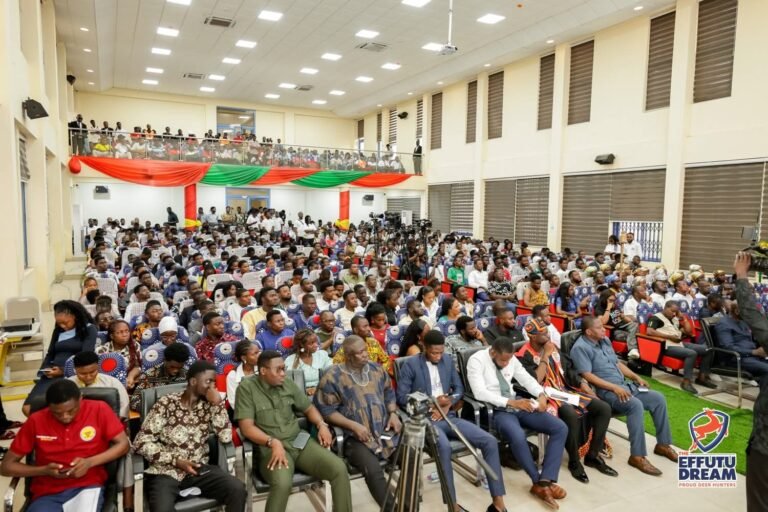
Alban Bagbin, Speaker of Parliament
The Speaker of Parliament, Alban Bagbin, has defended the payment of ex-gratia to Members of Parliament on the basis that the money is very important for the sustenance of the MPs after serving the country.
Speaking at the University of Professional Studies, Accra (UPSA) on the occasion of the ‘Third Eminent Guest Lecture Series’, dubbed “The Future of Parliament in Ghana’s Democratic Governance”, Mr Bagbin said MPs do not benefit much from ex-gratia as the public perceives.
He explained that the money spent by Members of Parliament to campaign for their elections is three times more than the ex-gratia they receive.
“We are having these problems because there is some perception that ex-gratia is some huge amount of money…You know that, as MPs, you don’t benefit from that ex-gratia. You don’t, because the money you spent to be elected to Parliament is thrice or four times what they give you as ex-gratia. No MP leaves Parliament better than the MP enters Parliament,” he said.
The Speaker of Parliament added that once an MP is elected, he must win the next election, compelling them to sacrifice everything in satisfying the voters in the constituency to retain their seats.
“…And at the end of the day when they lose the election, they have lost everything. They have invested everything in the election and they now have nothing,” he noted.
Partisanship
Touching on politics in the country, the Speaker emphasised the need to rise above partisanship if the country wants the legislative arm of government to be more effective.
According to him, many citizens have lost faith in democracy’s ability and promise to improve their lives.
“The wave of disillusionment that has affected many countries, including Ghana, should be reversed to restore hope in the power and promise of democracy. The role of Parliament is critical in this reversal effort,” he stressed.
The Speaker explained the importance of strengthening Parliament’s oversight drive, acknowledging that even though Parliament is endowed with broad powers under several Articles of the 1992 Constitution (103, 69, 82, 181…etc), “the Legislature’s oversight mandate has been the weakest link during the Fourth Republic”.
In his view, the only way to effectively implement this oversight function to improve accountability and transparency is for both sides of the House to take a bipartisan and neutral approach on how Parliament monitors the management of the State and its resources.
“The economic incentives and carrots that can be gained for siding with the executive, facilitated by extreme loyalty and strict party discipline. All these have all contributed to the weakening of Parliament’s position and oversight power,” he said.
He noted that, in the future, Parliament would need to achieve financial autonomy, to be fully equipped with the power to oversee the Executive.




